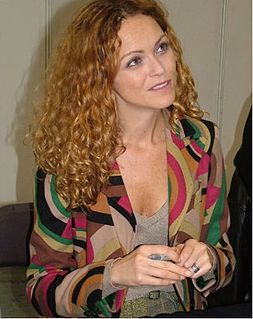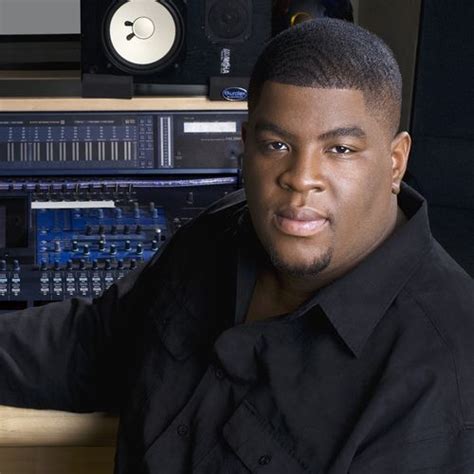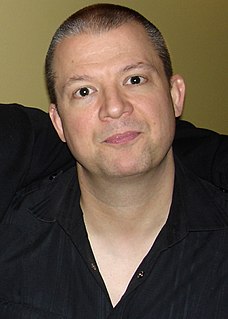A Quote by Rod Serling
I find dictating in the mass media particularly good because you're writing for voice anyway; you're writing for people to say a line and, consequently, saying a line through a machine is quite a valid test for the validity of what you're saying.
Related Quotes
You are playing a character obviously, and everything you are saying is filtered through that person. It is not you that is saying it. It is filtered through a character that doesn’t have your own set of values - so it is not really odd. Inevitably we help each other with a lot of line-learning. Plus there is a familiarity which is quite nice. We have done TV together before.
I haven’t had trouble with writer’s block. I think it’s because my process involves writing very badly. My first drafts are filled with lurching, clichéd writing, outright flailing around. Writing that doesn’t have a good voice or any voice. But then there will be good moments. It seems writer’s block is often a dislike of writing badly and waiting for writing better to happen.
People say to me, Oh, it's so wonderful that you're writing about real things, and that it's a political thing to do, and I say, look-to be in my position and not say anything is a hell of a political thing. You need to think politically, otherwise you'll be one of these people who says, Oh, this person's saying this and that person's saying that, and I'm confused. And I say, yeah, because you want to be confused.
I think everyone has a story to tell. Part of what I do is help artists find their voice, not only their vocal voice, but their writing voice. Every artist that I worked with who has those records that everyone talks about, they are also writers. I like to say I helped support whatever their writing was so people heard the song clearly.
Quite frankly, I talk about the fact that I'm a feminist as often as I can, and every time I do, it gets huge reaction, and media reacts, and the Twitterverse explodes and things like that, because here I am saying I'm a feminist. I will keep saying that until there is no more reaction to that when I say it, because that's where we want to get to.





































